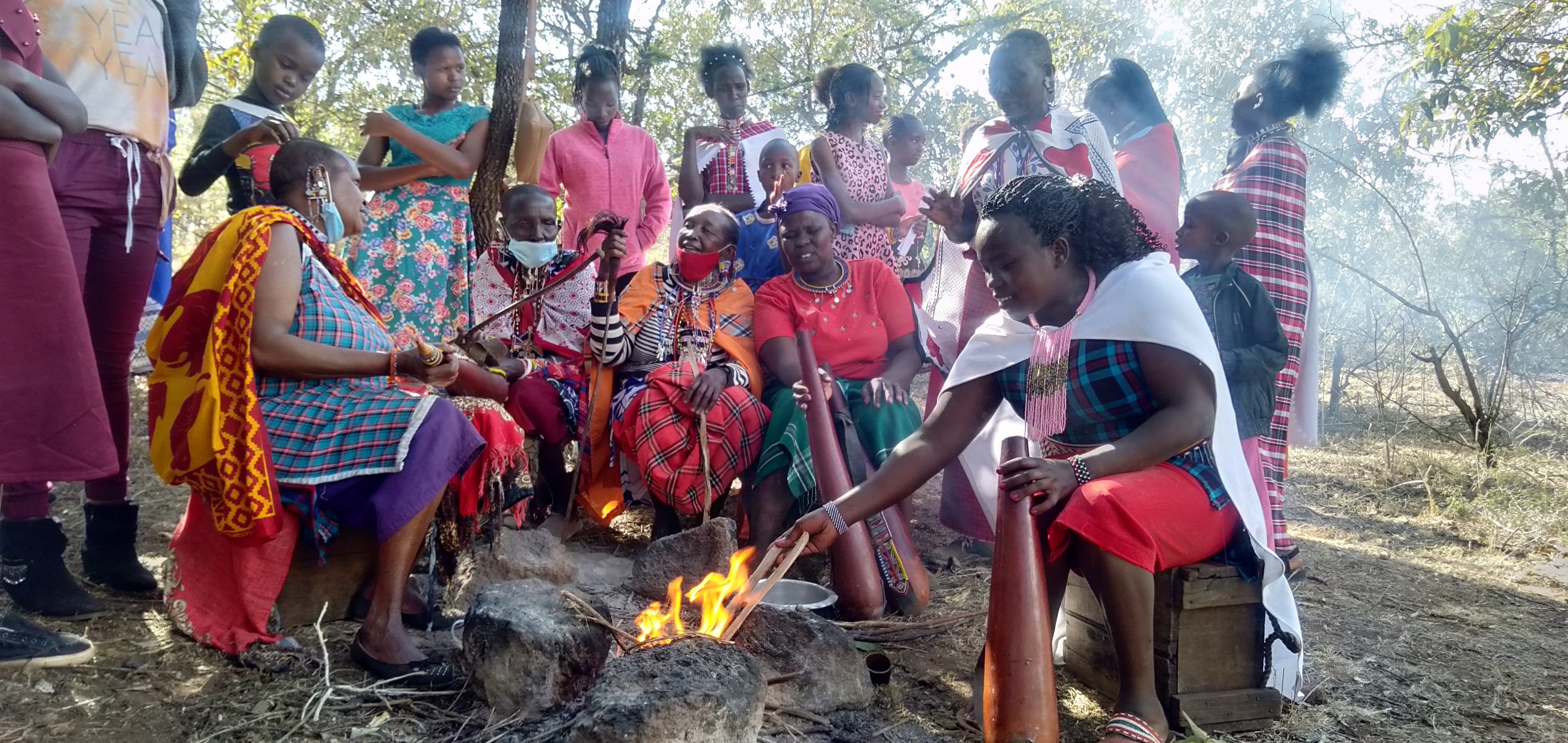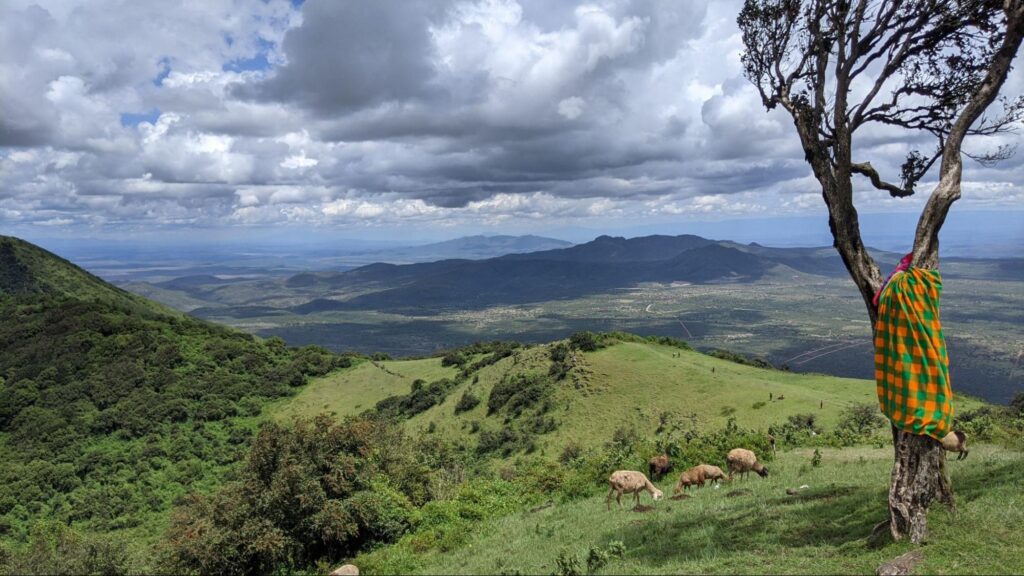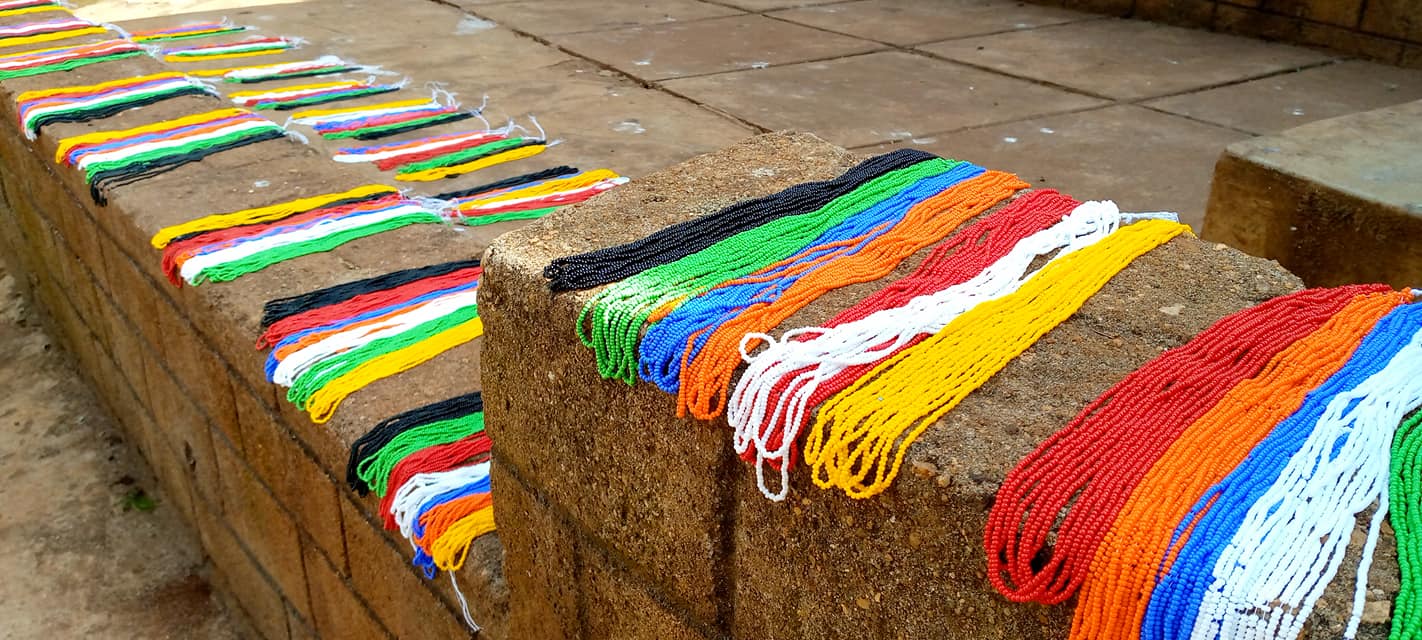East Africa, Storytelling, Cultural Heritage, Conflict Prevention, Interethnic Dialogue

Indigenous Knowledge and Culture is a project designed to promote peace, social cohesion, and understanding, among community members in Ngong, Kenya who are different from each other in terms of ethnicity, age, gender and religion. It involves informal community gatherings in which elders from one ethnic group share stories about their cultural heritage, and its importance to the community and values, with youth of another ethnic group. To attract youths' attention, elders use different arts practices, like beading, weaving, carving, drumming etc. depending on the crafts of a particular person.
These workshops, usually organised in schools, transfer valuable intergenerational cultural knowledge while providing a safe and inclusive space for community members to meet, exchange views and learn about each other.
Ethnic divisions continue to be a key driver of electoral violence in Kenya and must be addressed by the government through reforms aimed at a more inclusive and transparent democracy. With more than 50 different ethnic groups in the country, there is a lack of political representation that embeds values that lie in their diverse traditions. Moreover, on a social level, there is a lack of knowledge about differences and similarities of different customs and traditions these groups have, which would eventually prevent hostilities and major disputes over food, land, and scarce resources.

Storytelling and story-sharing by elderly in a community which preserve deep common values
Music and dancing are valuable intangible cultural heritage to diverse Kenyan ethnic communities
Indigenous traditions and customs being transferred by word of mouth


Sharing of intangible cultural heritage and indigenous knowledge among different ethnic groups engages them in dialogue, fostering sharing of common values and general understanding which could eventually prevent future hostilities.

Impact is seen in the process of building trust with community members. Community members from opposing ethnic groups were sitting on the opposite sides at the beginning of the program, after a few sessions were intermixing. Programme builds peace through cultural gatherings.

Youth engagement and education initiatives have increased awareness of cultural heritage and importance of learning about different cultures, while promoting inclusivity and equal participation. Each workshop gathers among 20-25 new participants.

Documentation of cultural knowledge and practices has ensured their transmission to future generations, contributing to community resilience.

If I'm sitting next to someone who may have killed my brother or sister, it will be very difficult if there is no music there, because music reduces tension. It speaks differently. It invites me. Music is medicine.
